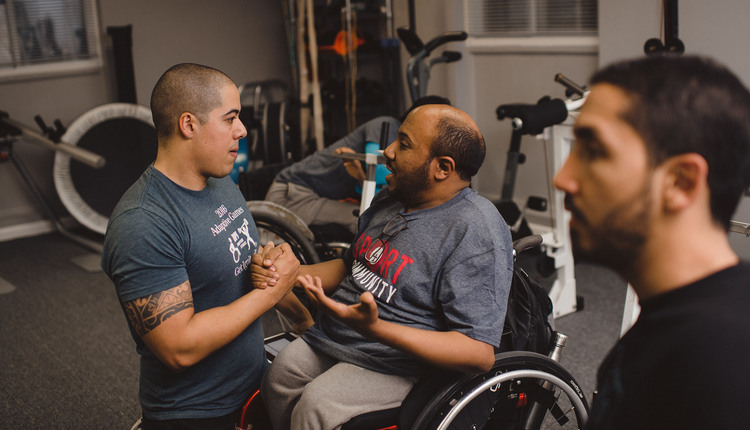
We've all had, or at some point will probably encounter, that one client who seems to resist any advice, contest every exercise, or question whatever program you have designed for them.
It may seem ironic that regardless of the fact that they are paying you because you are a qualified professional, the conversation about diet and exercise always starts with "Well I read that you should do this" or "they say you shouldn't do this." Frankly, it can feel like they are undermining your qualifications and ability to help them achieve their goals and putting more stock in what they hear and read from their friends and in the media.
We have to understand and appreciate that the way a client responds to change is largely conditioned by their past experiences. It's important that you feel confident in your abilities as a fitness professional to not take the response personally because it is likely not directly reflective of you. The resistance likely comes from a place of insecurity and skepticism because of a history of failing over and over again. They've tried "every" option, but have become so defeated and have such little confidence that anything will ever really work for them.
Failure breeds skepticism, and unfortunately, most clients only come to the conclusion that they need to front the money for a personal trainer as a last resort after they have tried and failed repeatedly.
To give a skeptical client the most value, it is our responsibility to be empathetic, but assertive; understanding of their past experience, but give them a structure that best suits them to take the small steps that will get them closer to their ultimate goals that will have lasting results, not just short term satisfaction.
It is also important to recognize when the relationship reaches a point where it is no longer a good fit and when it is beneficial to part ways on positive terms. Maybe there is another fitness professional (or other type of professional) who can better connect and better serve your client. If you find that working with the client seems to drain you of the positive energy you need to provide the best value, it is likely time to move on.
"Breaking up" with a client isn't always the easiest conversation, but if you're coming from a place of true concern, you should feel confident that you are doing what is in the best interest of the client. You may even provide resources or recommendations for them so that you don't feel as though you're leaving them in the dark with no options only leaving them to spiral back to where they were before hiring you.
Above all, it is important to remain confident in your capabilities as a highly qualified and valuable trainer. You are the professional. You understand what it takes to get a client to optimal health and fitness. However, as fitness professionals, we merely help make the path, but our clients have to be the one to embark on walking it.


















